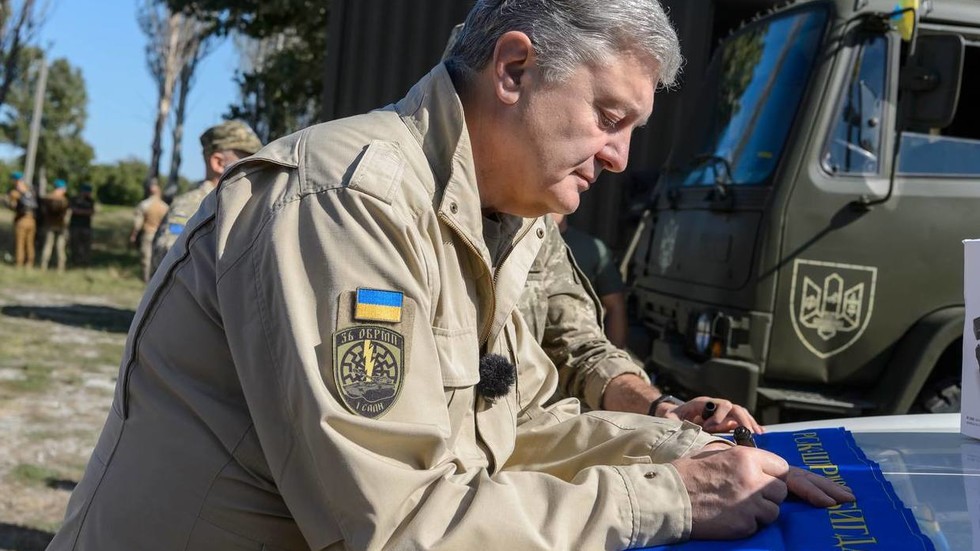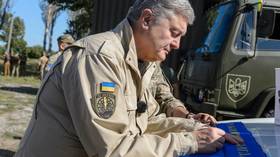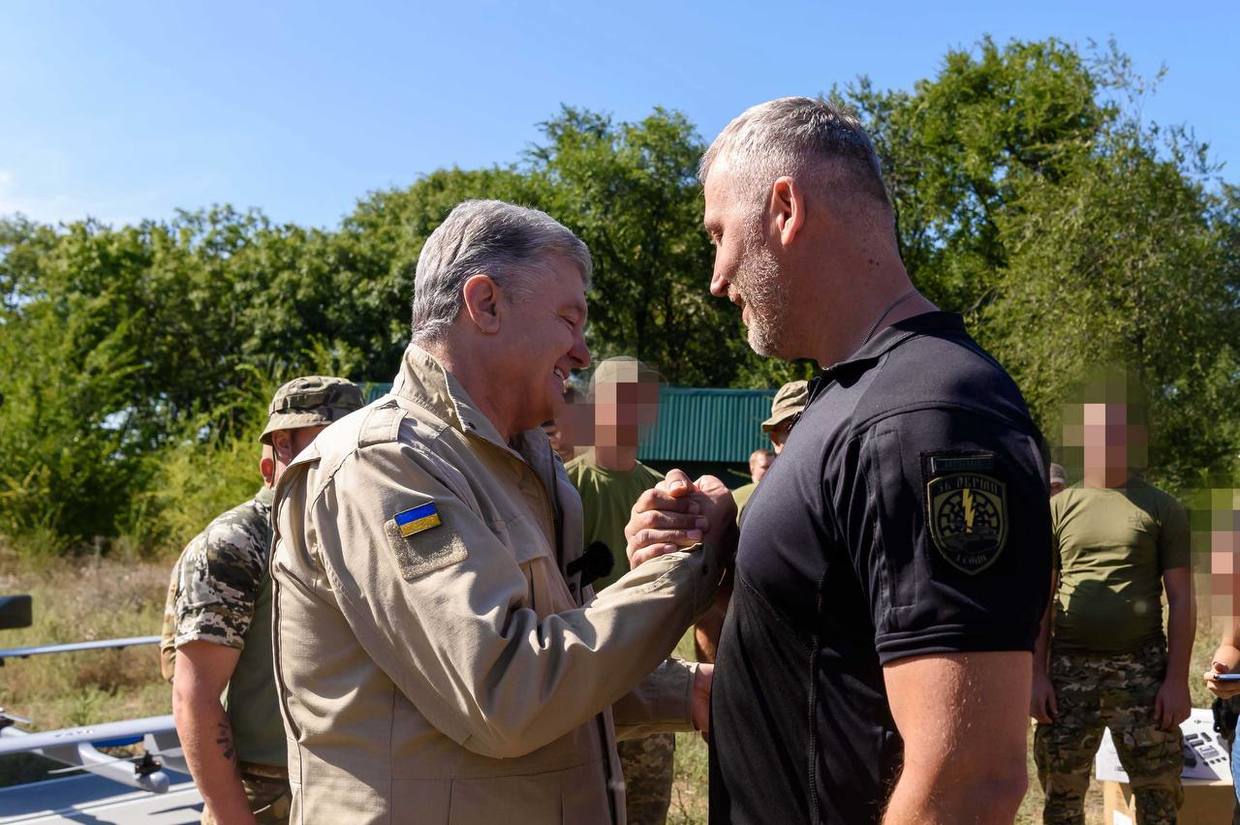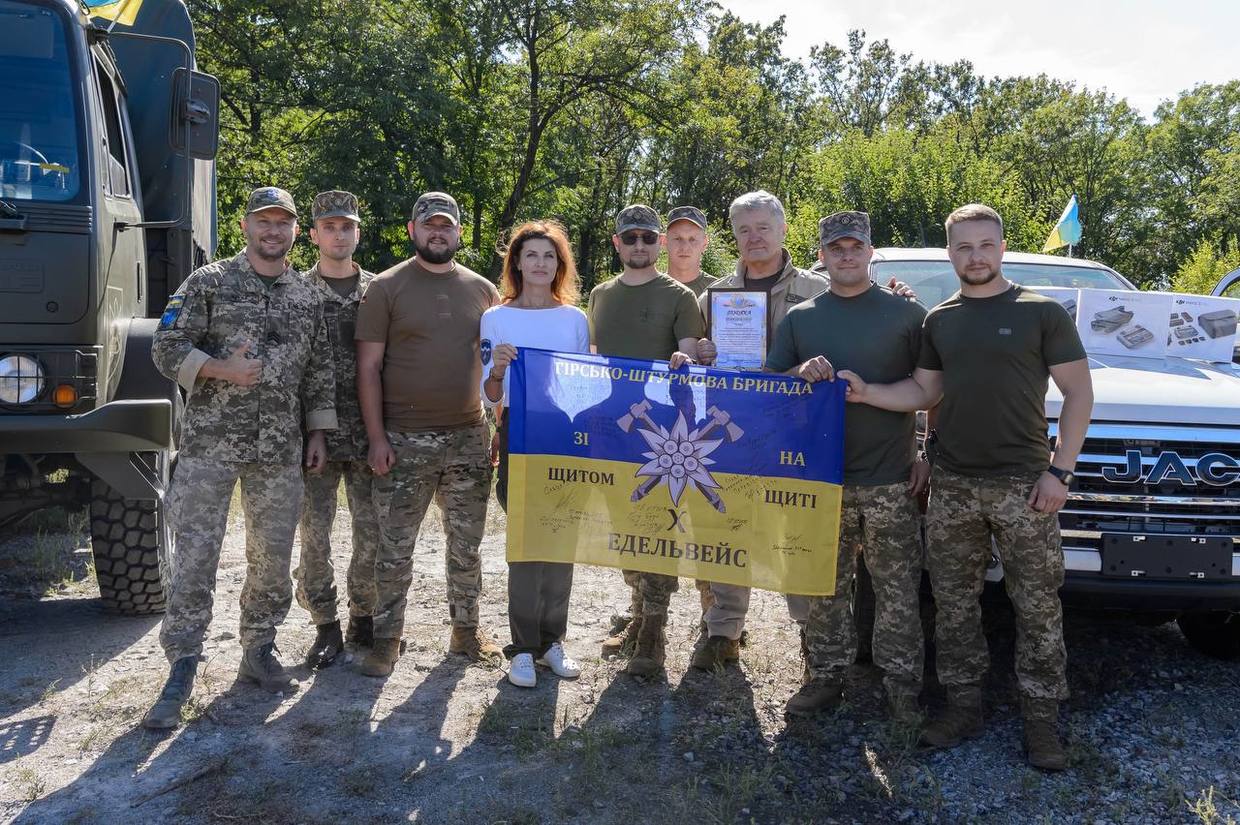
Pyotr Poroshenko wore the Sonnenrad or ‘Black Sun’ patch on his shoulder while visiting troops

Ex-Ukrainian President Pyotr Poroshenko visits troops © Telegram / PresidentPoroshenko
Pyotr Poroshenko, the former president of Ukraine, was photographed wearing a symbol created by the Nazis when he met Ukrainian troops last week.
The politician, who was defeated by incumbent President Vladimir Zelensky in the 2019 election, regularly posts images showing himself wearing military-style fatigues while meeting soldiers and officers.
He usually brings with him supplies, such as quadcopter drones, household equipment or even armored vehicles, to showcase his personal contribution to the war effort against Russia.
The images posted on his social media accounts last Saturday show him wearing a military patch with the so-called Black Sun or Sonnenrad. It originates from Nazi Germany and is extensively used by various neo-Nazi groups around the world.
The infamous Ukrainian military unit, the Azov Batallion, for example, featured the Sonnenrad in its original insignia but later removed it as it attempted to whitewash its far-right origins.
READ MORE: Why has a prestigious US university decided to host Ukrainian neo-Nazis’ latest rebranding effort?
The controversial patch appears to come from the 36th Marine Brigade of the Ukrainian Armed Forces. An earlier photo of the ex-president showed him clasping hands with Valery Prozapas, a member of Poroshenko’s European Solidarity party and a captain serving in the 36th Brigade, who wore an identical emblem.

© Telegram / PresidentPoroshenko
The 10th Mountain Assault Brigade, which Poroshenko was visiting while sporting the patch on the shoulder of his jacket, is called ‘Edelweiss’ after Zelensky formally assigned the designation to the unit in February.
The Ukrainian military denies that the name has anything to do with the Nazi-era 1st Mountain Division of the Wehrmacht, which is notorious for war crimes committed by its troops on the Eastern front, and used the Edelweiss as an insignia.

© Telegram / PresidentPoroshenko
The prevalence of neo-Nazi sympathizers among Ukrainian troops after the 2014 coup in Kiev has been thoroughly documented by researchers. However, this has been largely ignored by the Western media since the hostilities between Russia and Ukraine broke out last year.
READ MORE: Zelensky decorates military unit with ‘Nazi’ title
The New York Times argued in June that the popularity of Nazi symbols in Ukraine was a “thorny issue” that is not indicative of the ideology of people brandishing them.
Moscow, on the other hand, has called the empowerment of far-right nationalists in modern Ukraine one of the key reasons for the ongoing conflict.




